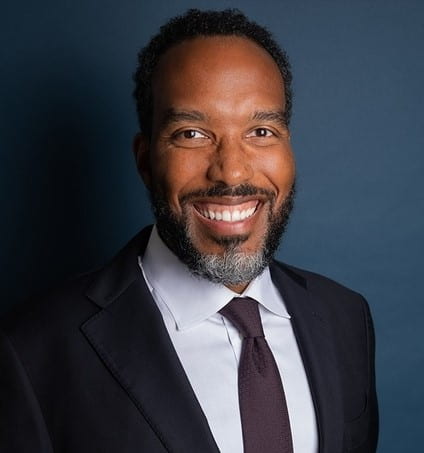 The wake of COVID -19 and its related health, economic and societal adversities fomented Damien Dwin’s resolve that impact investing in the investment management space had a critical role to play in addressing the nation’s health crisis. Following a successful career with Goldman Sachs, Credit Suisse, and Brightwood Capital, the events of 2020 led him to the founding of Lafayette Square Holding Company in November 2020. With an unconventional approach to typical private equity and venture capital firms, Lafayette Square’s theory of change combines capital and services to make an impact in housing, jobs, and financial inclusion. Mr. Dwin echoed the need for a more inclusive investment ecosystem where people of color, small and medium-sized businesses, and underserved communities receive equal treatment rather than as a façade for-profit-seeking. Mr. Dwin’s authentic perspective on decentralized, sustainable, inclusive, and impactful investments brings a breath of fresh air amidst the trying times of the COVID-19 pandemic.
The wake of COVID -19 and its related health, economic and societal adversities fomented Damien Dwin’s resolve that impact investing in the investment management space had a critical role to play in addressing the nation’s health crisis. Following a successful career with Goldman Sachs, Credit Suisse, and Brightwood Capital, the events of 2020 led him to the founding of Lafayette Square Holding Company in November 2020. With an unconventional approach to typical private equity and venture capital firms, Lafayette Square’s theory of change combines capital and services to make an impact in housing, jobs, and financial inclusion. Mr. Dwin echoed the need for a more inclusive investment ecosystem where people of color, small and medium-sized businesses, and underserved communities receive equal treatment rather than as a façade for-profit-seeking. Mr. Dwin’s authentic perspective on decentralized, sustainable, inclusive, and impactful investments brings a breath of fresh air amidst the trying times of the COVID-19 pandemic.
After working with globally recognized investment banking and management firms for many years, Mr. Dwin’s opinion is that most financial firms are self-serving and create a misleading impression about their support towards Environmental, Social, and Governance (“ESG”) goals. While he believes that Wall Street has created this bad image for itself, Mr. Dwin stated that it would take the intentional efforts of clients, employees, and the government to create a paradigm shift. Though he thinks that clients who demand more will play a role, he also emphasized the government’s importance in creating a constructive and purposeful regulatory framework. This should reflect the growing demand for firms that are impact-driven rather than self-enriching. Mr. Dwin is optimistic that the newly emerging generation of investment professionals will have the moral compass to define how impact could shape society without apology. As Mr. Dwin charters on this path with his newly established company, Lafayette Square, he shared his impact investing approach with students of Cornell’s Baker Program in Real Estate as part of the weekly Distinguished Speaker Series.
Lafayette Square’s investing approach is a unique one, focused on combining capital and services to create long-term, sustainable impact in housing, jobs, and financial inclusion. Shedding more light on the theme of services, Mr. Dwin explained that the strategy encompasses providing financial safety and security for affordable housing residents, including financial literacy training and strategic support for businesses. Aligning Lafayette Square’s approach with the concept of stakeholder capitalism, he believes firms should focus on meeting the needs of all of their stakeholders – customers, employees, partners, the community, and society as a whole.
With affordable housing being a key investment recipient, Mr. Dwin noted that Lafayette Square’s focus is to provide multifamily affordable housing units. He hopes to house 100,000 residents by 2030 in these properties. He went on to speak about an example of how this can be facilitated through modular construction. The company recently invested in FactoryOS, a company that creates affordable modular multifamily housing more efficiently and at a lower cost. Broadly speaking about what drove this investment, he highlighted that alongside providing affordable housing, FactoryOS is creating good local jobs and funding innovation, all of which align with Lafayette Square’s vision. In stressing the importance that job creation holds within his strategy, he noted his goal of employing 100,000 people in small- to medium-sized businesses. He noted his obsession in providing credit support to entrepreneurs whose goals were to help the community by building businesses, retaining those businesses, and creating jobs through those businesses. Tying it all together with the need for financial inclusion, Mr. Dwin believes that this could be achieved through three steps. First, by providing free and accessible strategic, technical, and operational guidance to small businesses. Secondly, assisting women and minority-owned businesses with working capital. And finally, helping these businesses grow their network and connections through referrals and introductions.
While Mr. Dwin explained how to drive societal change through impact investing, he emphasized that place-based capitalism is critical and an intellectual landing spot for impact investing. His description of place-based capitalism centers on capital raised from the community and reinvested within that same community, creating a virtuous cycle of investment and benefit.
